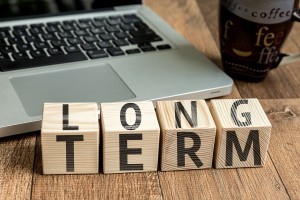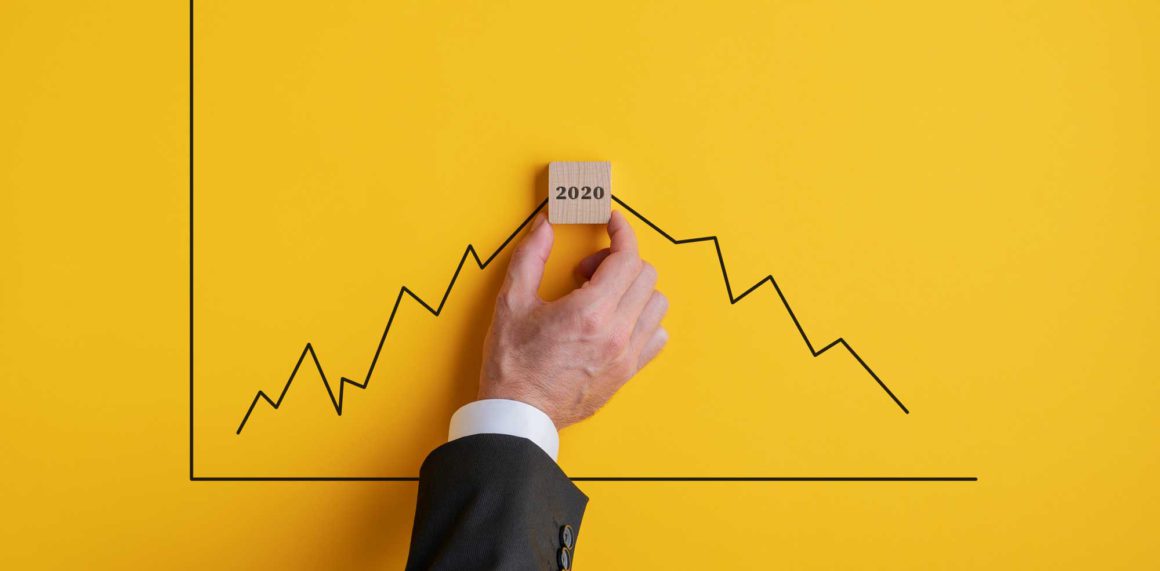Without wanting to seem too philosophical, I believe that life offers us lessons, but we must be prepared to look for them.
As we are approaching the end of 2020, I thought it would be a good idea to reflect on what Covid has taught us about our financial decisions.

I have been very proud of how my clients have stayed-the-course this year.
Only one client insisted on selling down some investments when the pandemic hit.
To be fair, there were some extenuating circumstances.
Thankfully, we helped many clients invest new monies during the peaks of market volatility.
Whilst these investments were made with the sole goal of maximising long-term value, their performance to date has been very rewarding.
I wanted to share some important lessons that I think the Covid experience has offered us (even as a reminder).
Expect markets to crash
Market corrections are not uncommon. They seem to occur every 8 to 12 years.
Of course, the cause of these corrections is always different, unique and completely unpredictable.
googletag.cmd.push(function() { googletag.display(‘div-gpt-ad-1599569002292-0’); });
That’s why they cause a lot of volatility, because the market gets spooked by an event it didn’t or couldn’t have anticipated.
And that’s why it always feels like “this time is different”.
Whilst every crash feels different, they are all the same.
Firstly, the market overreacts, and all investments are punished, almost regardless of quality and outlook.
In March, everything fell in value – shares, bonds, gold… everything! But the reality is that a crisis will impact some asset classes to a greater extent.
Secondly, markets tend to rebound much faster than we expect, which is evident in this chart I shared in a blog at the beginning of March.
The lesson is to be ready for times of very high uncertainty. Stay the course.
Don’t let these events tempt you to make any rash decisions i.e. selling.
If appropriate, be prepared to make additional investments.
In the midst of a crisis, focus on the long term
In times of a crisis, it’s difficult to focus on the long term because it’s hard to visualise how the crisis might play out.
However, despite that, there is great value in sticking to the long game.
For example, the world share index has generated good returns over the long run i.e. 10.7% p.a. between 1970 and 2019 to be exact.
 Investing in an index like this during a crisis might not generate above average returns in one month’s time, or even one years’ time.
Investing in an index like this during a crisis might not generate above average returns in one month’s time, or even one years’ time.
But because we know that markets always rebound strongly within a 5-year period after a crisis, it is likely it will generate above average returns in the medium term.
It is this approach that serves investors well.
And this is the approach I adopted when investing clients’ monies during March, April and May (and anytime really).
I invested in a way that aimed to maximise medium to long term returns.
I was not focused on trying to generate short term profits.
However, as it turns out, the result in the short term have been fantastic.
The lesson is that focusing on the long run helps people make investment decisions during times of (very) high uncertainty.
In fact, it’s the only option, as adopting a short-term outlook tends to be paralysing.
Cash buffers are important
Having plenty of cash savings provides a safety net in case your income unexpectedly falls, or a large expense crops up.
 I typically advise my clients to hold between 6 and 12 months of living expenses in cash savings.
I typically advise my clients to hold between 6 and 12 months of living expenses in cash savings.
Depending on your financial position and risk appetite, it might be important to hold more.
Whilst it’s unlikely that you will be without any income for between 6 and 12 months (and without income protection insurance cover), it does provide that “sleep at night” factor.
A cash buffer ensures you have sufficient time to make whatever adjustments that are prudent, including selling assets.
This reduces unnecessary stress and anxiety and pressure to sell assets quickly.
If you don’t have between 6 and 12 months of living expenses in cash savings, then perhaps this should be your number one goal.
Financial security gives you a ‘sleep at night’ factor
Many people have been working hard for many years or decades and have very little to show for it other than their home and compulsory super.
Building a nest egg outside of these assets provides greater financial strength to weather any storms.
If you lose your job and have liquid investment such as shares, you know you have a fallback position.
![Eggs In One Basket [converted]](https://cdn.propertyupdate.com.au/wp-content/uploads/2019/01/Eggs-in-One-Basket-300x212.jpg)
You have assets to sell, other than your home.
If you haven’t been regularly investing, perhaps Covid is your wake-up call to start doing so.
There will be another crisis, probably within the next 10 or so years, that will cause a high level of uncertainty and pain.
It might not be another pandemic.
It might be something else.
But there will be something.
Building a nest egg of assets that you can fall back on makes good sense.
And the best time to start is today.
Be careful what information you feed your brain
I stopped watching commercial TV when the pandemic hit in March, and I know many of my colleagues and friends did too.
The coverage was often alarmist and unbalanced.
It didn’t help me to become better informed.
It just created higher levels of uncertainty.
 We all know that we cannot expect to have a healthy body if we only eat unhealthy foods.
We all know that we cannot expect to have a healthy body if we only eat unhealthy foods.
The same goes for our brains.
We must proactively filter what we watch and read.
We cannot expect to make good, long term financial decisions if we are in a constant state of anxiety influenced by misinformation.
To a lesser extent, this also applies in normal, “non-pandemic” times too.
Some parts of the media will talk negatively about investing, borrowing, the property market, financial advisors and so on.
They will explore endless reasons why not to invest, not trust professionals, to delay buying a home and so on.
This content is written to attract your attention (which they sell to advertisers), not help you.
This year can be a lesson to us all, to think very carefully what we read, what we watch and the people we spend time with.
I eat my own cooking
Financially, this year has been a wonderful year for my wife and me.
 We have bought and sold residential property when no one else wanted to (i.e. during a seemingly endless stage 4 lockdown in Melbourne).
We have bought and sold residential property when no one else wanted to (i.e. during a seemingly endless stage 4 lockdown in Melbourne).
We have invested in shares and commercial property.
I share this information to make the point that I follow my own advice.
Often the best time to invest is when no one else is willing to do so.
One thing is for sure
There will be another crisis. It will be a unique event.
In the height of all the hysteria and uncertainty, it will feel like the world has changed forever.
So, I have two important questions for you.
What can you start doing now to prepare yourself and your family for the next crisis?
And what will you do differently when it hits?
googletag.cmd.push(function() { googletag.display(‘div-gpt-ad-1592314976732-0’); });
Read more: propertyupdate.com.au

